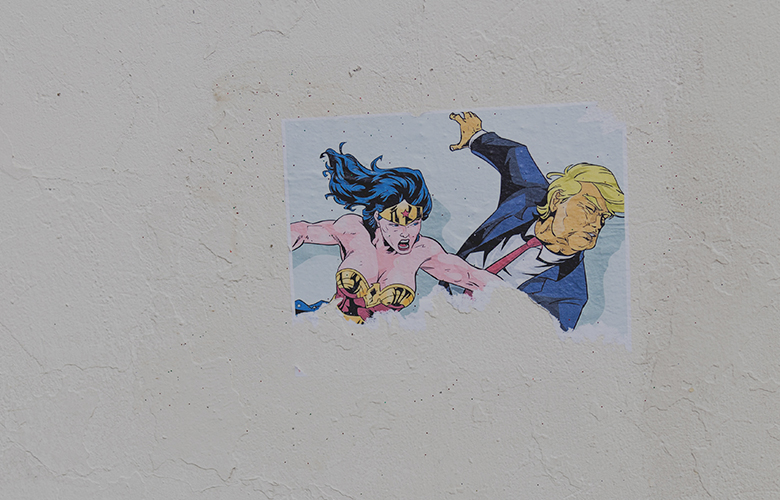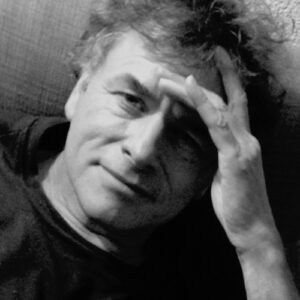
On November 19th, 2016, at 5:56 am, President-elect Trump tweeted, “The Theater must always be a safe and special place. The cast of Hamilton was very rude last night to a very good man, Mike Pence. Apologize!” That morning I was at my favorite greasy spoon, enjoying a plate of heart-stopping bacon and eggs when I read the Trump tweets. Trump was commenting on an incident that occurred the night before when Vice President-elect Mike Pence attended the musical Hamilton. After the curtain call, Brandon Victor Dixon, the actor playing Aaron Burr, read a statement calling for the new administration to defend and uphold the inalienable rights of all Americans. The audience cheered, Pence walked out, and the President-elect demanded an apology.
I mean, Francis Bacon, the English philosopher, not the blubber on my plate. In 1620 Francis Bacon wrote about the “Idols of the Mind,” in other words, the intellectual limitations that plague humankind. He included the idols of the tribe, the marketplace, the cave, and the theatre. Bacon’s Idols tie directly into the theatre, and one may be leading to its death.
You can find numerous interpretations of Bacon’s Idols. Here is my take:
The Idols of the Tribe is our tendency to groupthink. Alan Watts, in his book The Culture of Counterculture, writes, “We seldom realize… that our most private thoughts and emotions are not actually our own. For we think in terms of language and images which we did not invent but which were given to us by our society.” (pp. 53-54) The Idols of the Tribe is similar to “audience dynamic,” which the theatre promulgates for the two hours’ traffic of our stage, after which we hope the audience begins to think for themselves.
The Idols of the Marketplace Bacon said is the human tendency to lack “commerce” in our communication. We seldom understand each other because we seldom use words that have accurate shared definitions; instead, our words are loosely defined and ambiguous, which leads “mankind into vain and innumerable controversies and fallacies.” An example of this would be the words “democratic socialism.” Ask your right-wing uncle and left-leaning niece what these words mean, and you’ll find they are using the same words but different definitions, and thus their conversation at Thanksgiving lacks commerce. Good playwrights and actors toil to make their words have commerce.
The Idols of the Theatre is the human tendency to believe in invented dogmas that are agreeable and theatrical.
That last line will disturb some, but if my take on Bacon’s Idols of the Theatre is correct, he was inferring that beauty does not exist in nature. Beauty is a human emotion, and so if we assume beauty is truth, we idle the brain’s ability to find the truth. At its core, the dramatic arts are the idols of the theatre, for we invent beautiful playlands which we know are counterfeit yet claim to be invested with truth.
The Idols of the Cave is the individual’s tendency to favor his or her particular point of view. Our POV comes from our religion, society, and culture but is seldom based on primary sources. And yet we draw resilient opinions that we rarely question. In 1918, Wilfred Trotter, a pioneer in neurosurgery, wrote that if you examine the “mental furniture” of an average person, you will find that they have settled opinions on taxation, vaccinations, on the origins of the universe, and what happens after death. But the “bulk of such opinions must necessarily be without a rational basis” for the “training and experience” of an “average person” cannot qualify them to have opinions. Even experts consider these subjects “unsolved,” so how could an average person have a rational opinion? (Instincts of the Herd In Peace and War pp. 271-272)
You might think with the web that the Idols of the Cave would be less prevalent in the information age, but this is not the case. As Roberto Calasso points out in The Unnamable Present, the vast amount of information we have today, “tends to replace not only knowledge but thought in general…” If you are a teacher, you have watched your students simply look up the answer on the web and be satisfied that they have found the truth as they are “relieved of the burden of having to think as an individual.” (The Unnamable Present pp. 71-72)
It is important to note that the modern problem with the web-fueled, hyper-version of the Idols of the Cave has little to do with staying at home. Yes, theatre is suffering because more people are not going out. “Why risk a restaurant when you can order Seamless or sauté premade gnocchi from Blue Apron? Why go to a bar when you can swipe, right? Why go to a reading when you can download a podcast?” (Is Staying In The New Going Out? By Molly Young New York Times, April 12, 2016) But you don’t have to be in a physical cave to be trapped within a cave. You don’t have to be a homebody ordering Blue Apron to seek only those opinions that reaffirm your POV. Today, we occupy our caves everywhere we go, like earbuds.
The web’s algorithms help us find an unlimited supply of shingles. It allows us to dial up whatever truth we want, and have it conveniently delivered to our fingertips. We can, so to speak, get high on our own POV. But unlike with Lance Armstrong or the Russian Olympic team, there is no external oversight agency testing to see if we are doping.
Trump’s “apologize” tweet is nothing new. For centuries kings, queens, religious leaders, and politicians have demanded that the theatre be safe. My concern is that the theatre is now taking Trump’s advice and drawing into its own cave where risk is eliminated — A cave where no one will ever have to apologize because all plays say precisely what the ever-shrinking theatre audience wants to hear.
Recently I was working on a mailing list to send out fliers for Fascism The Musical, a politically incorrect cabaret I wrote and staged. My list included everyone I thought should know about the production.
Theatre was wounded but survived the onset of movies and television, but it will not escape the cave mentality that infects the digital world and Trump’s tweets. What will endure is an agreeable theatre which, like Fox News, NSNBC, and Marvel movies are baked, sliced, prepackaged, and conveniently delivered so that audiences can stay comfy in their impervious cave. We will have a gay theatre for gay people, black theatre for black people, and for white people, Cats, now and forever.
Arts and Humanities vs. Fascism: Defending Our Education
Theatre Vs Google: The Age of Self-Driving Theatre


William Missouri Downs has had 150 productions of his plays from the Kennedy Center to the San Diego Rep and won numerous playwriting awards including two rolling premieres from the National New Play Network. He’s twice been a finalist at the Eugene O’Neill. He’s published four books on playwriting, screenwriting and the art of theatre. Samuel French and Playscripts have published his plays. He’s also been produced in Spain, South Africa, Singapore, Switzerland, Austria, Israel, India, Russia, and South Korea. In addition he has written for several NBC sitcoms.
Read Full Profile© 2021 TheatreArtLife. All rights reserved.

Thank you so much for reading, but you have now reached your free article limit for this month.
Our contributors are currently writing more articles for you to enjoy.
To keep reading, all you have to do is become a subscriber and then you can read unlimited articles anytime.
Your investment will help us continue to ignite connections across the globe in live entertainment and build this community for industry professionals.